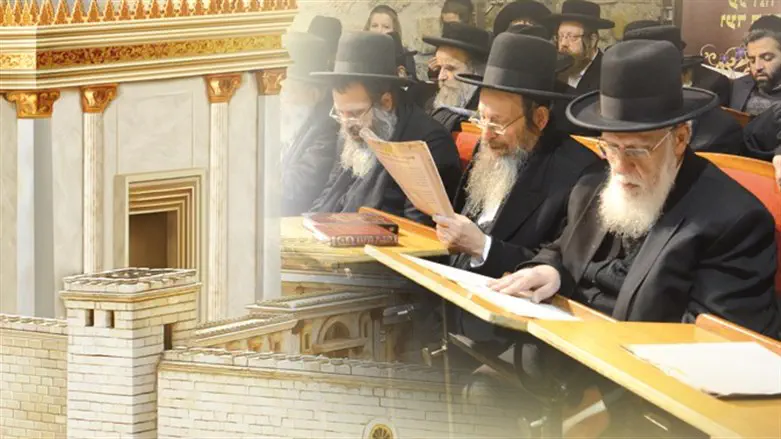
There is another deeper meaning to the name Zot Hannukah. If you want to know what Hannukah is all about, it is the fact that there are eight days of Hannukah. Eight is a central number is Jewish life. The number eight represents the uniquely Jewish concept that man has the ability to transcend his nature. Eight symbolizes the power of the soul to contact light and emit light. Hannukah, the festival of light, which represents Godly wisdom, is celebrated by lighting a Menorah just like in Temple times. It represents the Divine reality beyond nature.
As Hannukah is a celebration of miracles, it makes sense that the eighth day, the day beyond the natural week, encompasses the miraculous essence of this holiday.
Hannukah is a holiday that commemorates the Jewish people making the profound choice to remain loyal to their spiritual heritage, symbolized by the number eight, rather than the more immediately gratifying lifestyle of the Hellenist Greeks. And the eighth day is, metaphorically, when the people's dedication to their heritage shines the brightest.
Eight is our answer to the Greek challenge. The Greeks taught that nature is perfect and that there was no higher reality. The Jewish people's reality is guided by the Torah, which was given to us on the 49th day following seven weeks: seven sevens. The day of the giving of the Torah transcended the natural reality of 7 and raised us to a higher transcendental reality. This is a reality which which the Greeks tried to eradicate.
The Greeks prohibited circumcision on the eighth day under the pain of death. Eight represents the step beyond beyond nature. Circumcision on the 8th day represents our challenge to go beyond how we were created and devote ourselves to the completion of our physical and spiritual forms.
With G-d’s help, we prevailed over the Greeks and the triumph is celebrated with an eight day holiday. This is Hannukah. Zot Hannukah!
(https://www.ou.org/holidays/Hannukah/zot_Hannukah/)

Sealing of Judgement
According to Jewish mysticism, the last day of Hannukah is the last day on which our judgement is sealed, a process which started on Yom Kippur followed by Hoshana Rabba. It is the final day on which we can complete our teshuva process and receive a favorable judgement. The Hassidic masters see several hints to this in different verses. One is Isaiah 27:9: "Through this ( ZOT) will Jacob's sin be forgiven" - i.e., on account of the holiness of Zot Hannukah.
A different possible idea is as follows. Hannukah celebrates the refusal of the Jews to assimilate into Greek culture. The Greeks sought to obliterate Jewish observance and to have the Jewish people adopt Greek customs and values. The Maccabees and others refused to submit, but were willing to give their lives to preserve their beliefs.
Hannukah thus represents our willingness to identify ourselves as Jews and refuse to blend into our host culture. Thus, perhaps even if a Jew did not merit a good judgment on Yom Kippur based on his religious observance, he can still merit Divine favor if he absorbs the message of Hannukah and proudly and publicly identifies himself as a Jew.
See more at.https://www.aish.com/atr/Final-Judgment-on-Hannukah.html